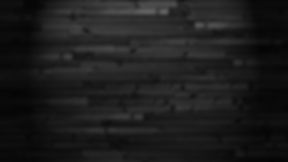No Evidence Justifying Penalty
Judgment was handed down in the Tax Court on 18 November 2014 in the case of AB (Pty) Ltd v The Commissioner for the South African Revenue Service(case number 1132, as yet unreported).
In this matter the South African Revenue Service (SARS) audited and assessed a vendor in respect of Value-added Tax (VAT). It appeared that the vendor could not adequately explain, nor provide supporting documentation, in respect of discrepancies between its VAT declarations for the relevant periods, and the VAT control account in its books.
The vendor objected against the assessments, but the objection was only partially allowed. The revised assessments, following the partial allowance, were in respect of overstating input VAT, additional tax at 200% in terms of s60 of the VAT Act, No 89 of 1991 (VAT Act) (as it read at the time), a 10% late payment penalty in terms of s39 of the VAT Act, and interest.
The vendor appealed against the decision of SARS to not allow the objection in full. However, the vendor subsequently conceded that the capital amount of the tax was due, and proceeded with the appeal only in respect of the additional tax, late payment penalty, and interest.
In support of its appeal, the vendor submitted to SARS that it had never been its intention to evade tax, that it was under the impression that its auditor was correctly dealing with its tax affairs (not having any tax or accounting experience themselves), and requested that SARS be lenient and waive the penalties and interest.
In respect of the 200% additional tax, the parties agreed that SARS had the duty to begin and that the onus was on SARS to prove that the imposition of the additional tax was correct.
SARS called one if its auditors as a witness, which recommended to an internal committee that the additional tax be imposed. However, the decision to impose the additional tax was ultimately made by a more senior committee, and little reliance could thus be placed on the witness.
The court noted that SARS did not place any evidence before the court as to how and why the senior committee arrived at its decision, and there was thus no evidence that would enable the court to assess the correctness of the decision. The court also noted that SARS, at the outset of the hearing, advised the court that it no longer sought to impose 200% additional tax, but only 100% additional tax. This implied that SARS conceded that the decision of the committee was incorrect.
The court took the approach that a court is allowed to re-hear the entire matter where the correctness of a discretionary decision (which is subject to objection and appeal) is contested.
On such a rehearing, SARS has to lead evidence afresh to show how the percentage of additional tax was arrived at, and that it was correct, but no such evidence was presented. SARS did thus not discharge the onus, which it had accepted.
The court accordingly set aside the imposition of the additional tax, and directed that “the additional tax be remitted to nil”. The court did not deal with the late payment penalty and the interest.
Author: Heinrich Louw (Cliffe Dekker Hofmeyr)

